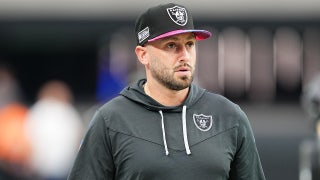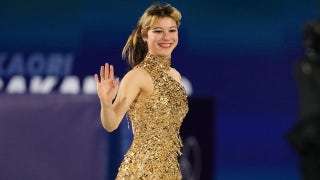With their courageous victory in Game 4, the Magic raise an interesting question: Was their win just a one-night stand, or can it possibly lead to a lengthy engagement with the Celtics?
One significant factor in Orlando's surprising success was presenting a pair of staggered screens for Jameer Nelson to work with. Since Rajon Rondo has the quickness, the toughness, and the determination to fight his way through most single-screens -- coupled with the effective help offered by the screeners' defenders -- this tweak in the Magic's game plan was nothing short of brilliant.
I hereby take back every negative thing I've ever said about Stan Van Gundy. Well, almost everything.
Getting around a brace of screens was too difficult a task even for Rondo, so Nelson was routinely able to turn the second corner, carry the ball into the paint, and execute nifty kick-out passes that led to all kinds of highly makeable shots. Also, when the Celtics' baseline rotations had to cut off Nelson's penetrations, Dwight Howard was left alone to turn drop passes and missed shots into resounding dunks.
Plus, the Boston big man defending the secondary screen was understandably discombobulated and therefore hesitant to make appropriate spontaneous adjustments. The general confusion was contagious and allowed Dwight Howard to roll hoopwards with only minimal resistance.
However, this tactic is strictly a one-time trick. Once Tom Thibodeau gets a chance to study the game video he'll surely come up with an antidote for this surprise strategy. For example, defending this particular alignment the same way that a baseline double-screen is defended: Having the two defending bigs slide a half-space toward the baseline end of the second screen to force Nelson to run a circle route instead of a bee-line. Meanwhile, the screenee tailgates Nelson and prevents him from reversing field. However, the top-most screen-defender must make sure to maintain sufficient contact with the initial screener to prevent him from freely dive-cutting to the rim.
Bet that Thibodeau will come up with several effective remedies to nullify Van Gundy's brainstorm.
The Magic also won because Rondo was uncharacteristically passive with the ball, especially in early offense sequences. When Rondo did attack the cup in Boston's half-court sets, he either missed his dependable floaters or else Howard swatted them.
It's also a good bet that Rondo will scoot and shoot more, and will also be keenly aware of Howard's presence when he does approach the goal. Look for more warp-speed layups and interior assists racked up by Rondo in Game 5.
Another major factor in the outcome was Boston's overreacting to ball penetration. On several Magic possessions where (primarily) Nelson or one of his teammates ventured into the paint they were quickly surrounded by five Celtics. Of course this left 3-point aces like J.J. Redick and Rashard Lewis unattended.
By swarming the ball, the Celtics increase their chances of coming up with steals and blocked shots, but the tactic does have its risks. It remains to be seen if Boston will reduce the defensive crowd in the lane or stay in touch with Orlando's dangerous long-range shooters.
Furthermore, the Celtics contributed to their own undoing by running too many isos both later in regulation and in the overtime period. Credit Orlando's spidery defense for stifling Boston's usual quick-hitting ball- and player-movement. However, team-oriented offense continues to be the hallmark of the Celtic tradition. Selfish and/or lazy deviations lead to losses that could easily have been wins.
It also appeared that the younger Magic simply wore down Pierce and Garnett. As a result, PP and KG lacked the endurance to keep moving at the requisite speed to maintain their concentration, causing them to miss relatively easy shots and to commit unforced turnovers.
By relentlessly pushing the ball -- even after made baskets -- it's certainly conceivable that the Magic can reprise this game plan with the same or similar results.
With the series returning to Orlando, the Magic are still alive and kicking. And because of what occurred in Game 4, Orlando is now proactive while the Celtics are reactive.
The Magic should not even be thinking of the improbability of winning the next three games. Instead, all of their focus should be on winning Game 5.








































